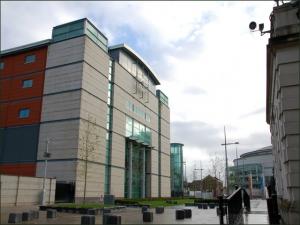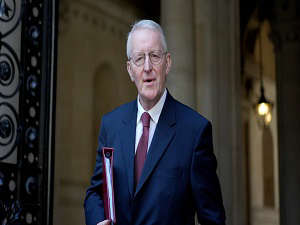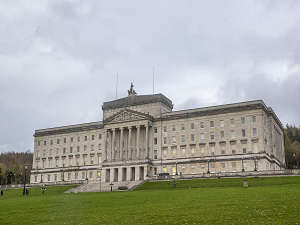
By Lesley-Anne McKeown, Press Association
A woman allegedly raped by two rugby stars lied to save face, a jury has been told.
In his closing submission, Arthur Harvey QC, representing - Blane McIlroy who denies exposing himself to the alleged victim, said lies were built on lies.
"What had she to gain from telling an untruth?" he asked.
"The simple thing, in literature as in life, is that lies do not start off necessarily as a malicious intent to cause harm to others, but lies build on lies.
"If you have a sense that you are about to be shamed on a network which your friends access, your first reaction is 'how do you deal with that shame' and mostly it is 'how do I save face'.
"And that's the reaction she had because she said that in her ABE (achieving best evidence) interview. She was mortified because of her foresight as to what the consequences would be."
The lawyer said that the momentum of the woman telling her friends about the alleged rape led to the complaint being made to police.
And, pressing the point further, he added: "What had she to gain?
"The answer is her reputation."
Mr Harvey spent almost two hours addressing the jury of eight men and three women who have listened to eight weeks of evidence presented at Belfast Crown Court.
Drawing his speech to a close, he said: "When you look at the facts in relation to Mr McIlroy in this case you could never be satisfied beyond a reasonable doubt.
"Almost the reverse.
"There is neither a hook nor a hinge upon which you could hang any doubt upon his innocence."
Earlier the barrister outlined a "volume of inconsistencies and contradiction" in accounts the woman gave to friends, medics, police and in court.
She was an "unreliable" witness, he suggested, providing "a variety" of answers and "narratives" about what went on in the bedroom of Paddy Jackson's house during the early hours of June 28, 2016, the court was told.
"Which is true?" asked Mr Harvey.
"Is it the last account? Is it the middle account? Or is it the first account?"
By contrast, the defence counsel claimed McIlroy had been truthful.
"Mr McIlroy has told the truth.
"The truth is simply not compatible with the account of (the complainant)," said Mr Harvey.
Referencing Prosecution allegations that McIlroy had "delivered the wrong lines" after allegedly concocting a cover-up with his friends a day after the alleged assault, the lawyer said: "What is wrong here is that the theory is full of paradoxes."
It was unlikely anyone would risk incriminating themselves just to protect their pals, he suggested.
"What rational, reasonable, sensible, intelligent individual would present himself in the police station to give an account before he knew what any of the allegations are specifically against him.
"To incriminate himself in a potentially much more serious charge?
"Quite simply it does not bear examination," said Mr Harvey.
Earlier, the court was told that when McIlroy walked into the police station on June 30, 2016, his life changed.
He was unaware of the legal system and how it worked, jurors were told.
Mr Harvey said: "His life changed and it changed irrevocably.
"There is nothing that can bring back the last 20 months of his life.
"There is nothing that can restore the last 20 months of his life.
"He has come before you, a young man.
"For three years he had been studying in the United States. He was one semester, three months short of completing his degree. He has been unable to complete it.
"He's not looking for sympathy.
"He is looking for his legal entitlement."
The case has been adjourned until Thursday.


 Appeal to European Court being considered after ruling over Troubles disclosures
Appeal to European Court being considered after ruling over Troubles disclosures
 Executive agrees to set aside £119m for PSNI data breach payouts
Executive agrees to set aside £119m for PSNI data breach payouts
 Concern voiced as next phase of Omagh Bombing Inquiry hearings delayed
Concern voiced as next phase of Omagh Bombing Inquiry hearings delayed
 Four fatal house fires in three days in Northern Ireland ‘deeply concerning’
Four fatal house fires in three days in Northern Ireland ‘deeply concerning’
 ‘Much more to do’ to protect children in NI from sexual exploitation – report
‘Much more to do’ to protect children in NI from sexual exploitation – report